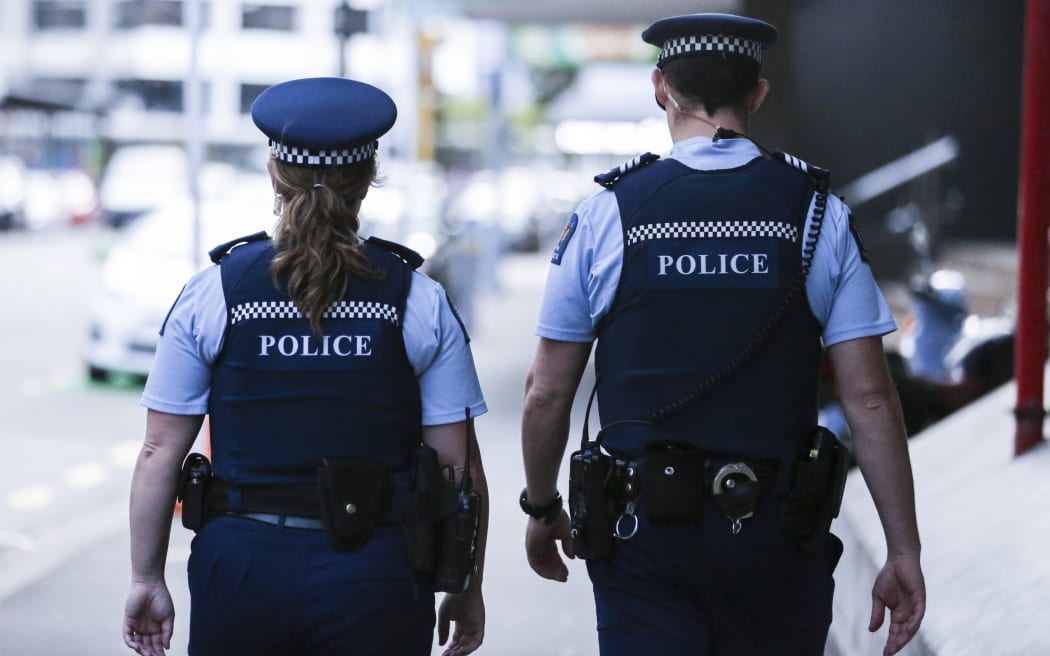
The police's planned retreat from mental health crisis callouts will reach another milestone on Monday. Photo: RNZ / Richard Tindiller
The police's staged retreat from responding to mental crisis callouts reaches another milestone on Monday, with a 60-minute limit on patient handovers at emergency departments taking effect nationwide.
That change - along with a requirement for people in mental distress to be assessed in health settings, not police cells - is the second of four stages in a year-long programme announced by former Police Commissioner Andrew Coster last August.
The rollout has been slower than planned, due to the fact health services in some regions were not ready.
Phase Two changes take effect from Monday in the third and final group of regions:
- Health NZ districts: Northland, Taranaki, Whanganui, and MidCentral
- Police districts: Northland, Central
- Health NZ specific areas: Tokoroa and Taumarunui (Waikato), Taupō (Lakes), Wairoa (Hawke's Bay), and Waitaki and Southern Lakes (Southern)
- Police specific areas within districts: Taupo and Tokoroa (Bay of Plenty), Wairoa (Eastern), and Central Lakes and Waitaki (Southern)
Police assistant commissioner Mike Johnson said police and health remained committed to "joint efforts towards making sure people have access to the right help at the right time, which works best for them".
"Police have always, and will always, respond when there is an immediate risk to life or safety. The change is about an increased health-led response, enabling our staff more time to get back into our communities do the work that only police can."
Health NZ director of specialist mental health and addiction Karla Bergquist said a range of mental health support was available "for those who need it".
"This change is about ensuring people requiring mental health support receive the right care at the right time, while maintaining the safety and well-being of patients and our staff.
"I'd like to assure the public there is a range of services to help people in mental distress or those who are concerned about the mental health of whānau.
"If a person is in serious mental distress or crisis, support is available from their local crisis team."
Phase Two had "generally gone well" in districts with strong local partnerships between police and health, she said.
Bergquist said detailed planning for Phase Three was underway and it was hoped to confirm new implementation dates soon.
"We will continue communicating with each district to ensure a successful, joint approach to Phase Three for both NZ Police and Health NZ and the people who come into contact with our services.
"An implementation date for Phase Four is unconfirmed but it will follow Phase Three."
Phase Three - which was initially to begin April to June - involves police applying a "new response thresholds" to requests for assistance from health practitioners, or to help with missing person reports from mental health wards and facilities.
Phase Four - originally scheduled to take effect between July and September - will cut ED handovers to 15 minutes, unless there is an immediate safety risk, and fewer welfare checks "when there is no risk of criminality or to life or safety".
Police said there were "a lot of complexities to these changes" and further consideration and consultation would occur before any final decisions were made.
Click on the link for mental health crisis phone numbers.
Sign up for Ngā Pitopito Kōrero, a daily newsletter curated by our editors and delivered straight to your inbox every weekday.





